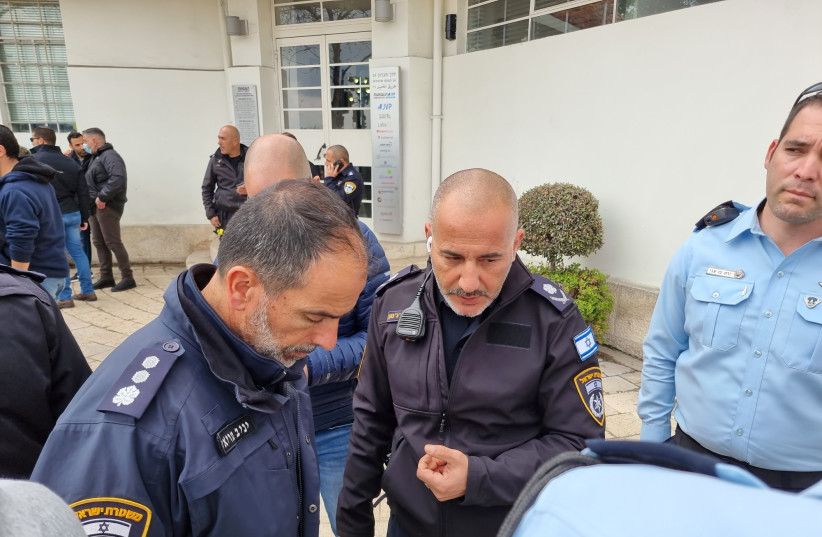Israel security forces will likely increase its presence across the country, and not only in Jerusalem and the West Bank following a deadly attack that saw four Israeli citizens killed and two seriously injured in a terror attack carried out by an Islamic State supporter in the southern city of Beersheba on Tuesday.
The attacker, Mohammed Abu al-Kiyan, a Bedouin man from the nearby town of Hura, was shot dead by armed civilians at the scene. The attack lasted eight minutes, and Israel Police arrived at the scene four minutes after al-Kiyan was killed.
According to sources, while the police and Shin Bet (Israel Security Agency) have increased their presence in Jerusalem and the West Bank ahead of the holidays of Passover, Easter and Ramadan that begin at the start of April, the security establishment will hold a situational assessment later on Tuesday evening to decide if the police should increase presence in other areas of the country.
While the attacker was a known Islamic State supporter and had family members who joined the jihadist group in Syria, The Jerusalem Post has learned that the police are leaning toward the belief that the attack was nationally motivated and not carried out in the name of ISIS.
Al-Kiyan was known to the police and Shin Bet and had been arrested in 2016 and sentenced to four years in prison for forming a group that planned to travel to Syria and join ISIS. An elementary school teacher, al-Kiyan was also convicted of teaching children and members of the community during sermons with content inspired by the jihadist group.

He had recently finished his sentence and had been released.
According to Israel Police Spokesman Eli Levy, despite the heightened alert due to the rise in attacks, there was no advanced warning of the terrorist attack carried out by al-Kiyan.
Following the attack, Israel Police officers have begun to investigate whether al-Kiyan was helped by any family or friends and if there are any other suspects still in the area. Police and the Shin Bet have gone to al-Kiyan’s home to speak with the family to also see if they knew that he was planning such an attack.
The deadly attack in Beersheba follows a series of stabbing attacks in Jerusalem and the West Bank by lone wolves targeting security forces in recent weeks. Several Palestinians have also been killed by IDF troops during violent clashes in the West Bank.
Nevertheless, the attack on Tuesday was different from the attacks that occurred in the capital. While Beersheba and the surrounding areas have seen a rise in violence in recent years by the Bedouin community, there has not been a deadly terrorist attack in the area for many years, especially one targeting civilians.
During the height of the Islamic State’s power, close to 100 Israelis joined the terrorist group, and several Israeli-Arabs were arrested by the Shin Bet and Israel Police for seeking to join the group. Several of those who joined the group were killed and a small number are believed to have returned to Israel, either on their own accord or after being caught by Turkish authorities while trying to cross the border and deported back to Israel.
In October 2015, authorities broke up the first known case of an ISIS plot in Israel and indicted seven Israeli-Arabs on charges of belonging to an ISIS cell planning to attack military targets.
The first deadly attack believed to have been inspired by the jihadist group was in January 2016 when an Israeli-Arab went on a shooting spree in Tel Aviv killing three people, six months later two Palestinians shot dead four Israelis at Tel Aviv’s Sarona Market.
